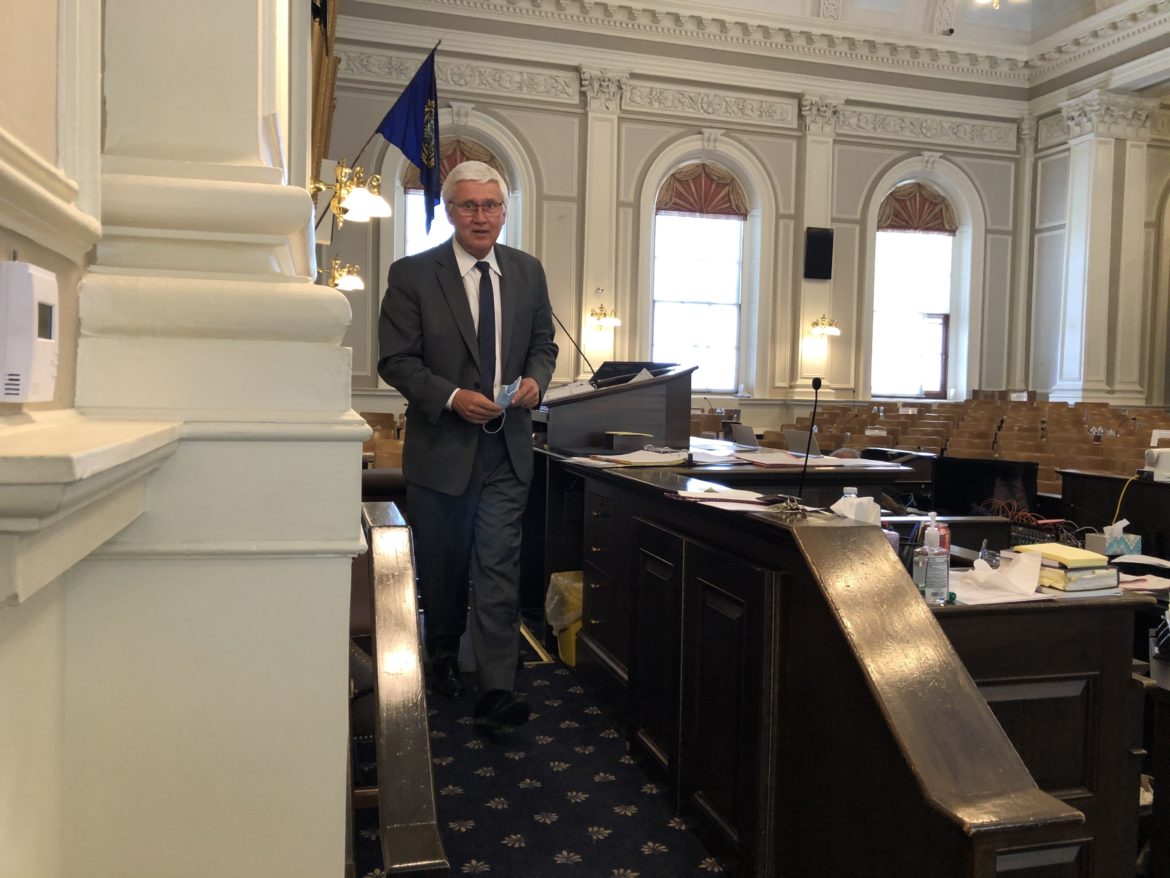By GARRY RAYNO, InDepthNH.org
CONCORD — The Senate Finance Committee Tuesday approved adding $14.8 million to Health and Human Services’ budget, much of it for mental health services.
The committee also added $10 million in general fund money to compensate victims of the Financial Resources Mortgage Ponzi scheme more than a decade ago that bilked investors out of an estimated $20 million.
At yesterday’s meeting, the committee voted to increase funding for mental health services including those for children by a little more than $8 million to stabilize community mental health programs as well as establish additional mental health mobile crisis teams for adults and children.
The committee also added $3 million over the next biennium for childcare for children whose families receive preventive and protective services from the agency.
And the committee added $1.5 million for additional home visiting services under the Medicaid Managed Care program as required by a bill passed in 2019.
Also added was $440,000 for outreach to young people under the tobacco prevention and cessation program.
And the committee approved adding $4.7 million for a variety of top priorities for the Department of Safety and additional money for the Department of Agriculture.
Ponzi Scheme
Over the years, victims of the FRM ponzi scheme have lobbied lawmakers without success to provide compensation for their losses.
They argue it was the failure of state regulatory agencies to intervene after complaints were filed against the Meredith-based financial firm.
State agencies argued over which one should have had jurisdiction over the company among the departments of banking, securities and justice.
Senate President Chuck Morse, R-Salem, said Tuesday the House included the $10 million in its budget but used several funds to pay for it, while there is enough general fund money to cover the cost.
He noted the $10 million was what a committee determined would be a fair amount.
Sen. Bob Giuda, R-Warren, who served on the committee, said the issue would go away with the $10 million.
“This is nowhere near the total losses of the victims of the FRM scandal,” he said. “It was the willful inaction of state government on what was clearly a ponzi scheme.”
But Sen. Cindy Rosenwald, D-Nashua, said while she feels sorry for the investors who lost money, if they are going to spend $10 million in state money, it should benefit the most people possible.
“I am more concerned about the 20,000 people who will lose their unemployment insurance by mid-June,” Rosenwald said. “I would rather spend millions of dollars to help them.”
Gov. Chris Sununu announced earlier this month he would end the federal unemployment compensation enhancement program of $300 a week on June 19 and replace it with a workers’ bonus program.
Business organizations have pressured the state to end the federal enhancement in order to force more people into the workforce as businesses face significant worker shortages heading into summer tourist season.
The federal bonus program runs until Sept. 6, but a number of Republican governors have ended the program early.
Currently about 35,000 state residents are eligible for the federal enhancement, which at the height of the pandemic was $600 per week.
The five Republicans on Finance voted to include the $10 million for the FRM victims’ compensation fund, while the two Democrats voted against it.
The committee meets Wednesday beginning at 9 a.m. to decide on amendments to House Bill 2, or the trailer bill that is intended to include changes in law to coincide with the operating budget.
Yet to be addressed by the committee are several controversial provisions included in the House budget such as the contents of House Bill 544, which would prohibit including “divisive concepts related to sex and race in state contracts, grants, and training programs.” The bill would apply to schools, state agencies, and companies and organizations that have state contracts.
Also to be determined Wednesday is an amendment to the governor’s proposal to merge the University System of New Hampshire and Community College System of New Hampshire.
Instead of creating a joint board, as Sununu proposed, the House created a study commission.
The Senate would change the make-up of the commission and would add $500,000 to the $1.5 million the House appropriated for its work.
Also to be determined is how and when to close the Sununu Youth Services Center, and if $40 million in revenue sharing with cities and towns over the biennium should be included in the budget.
After the committee finishes its work, the Legislative Budget Office will parse the numbers and the committee will meet Friday to take a final vote.
Finance will hold a budget briefing for senate members Tuesday and the Senate will vote on the budget bills June 3.
After that vote, the House and Senate are expected to hold a conference committee to work out the differences in the two budget proposals.
Garry Rayno may be reached at garry.rayno@yahoo.com.





